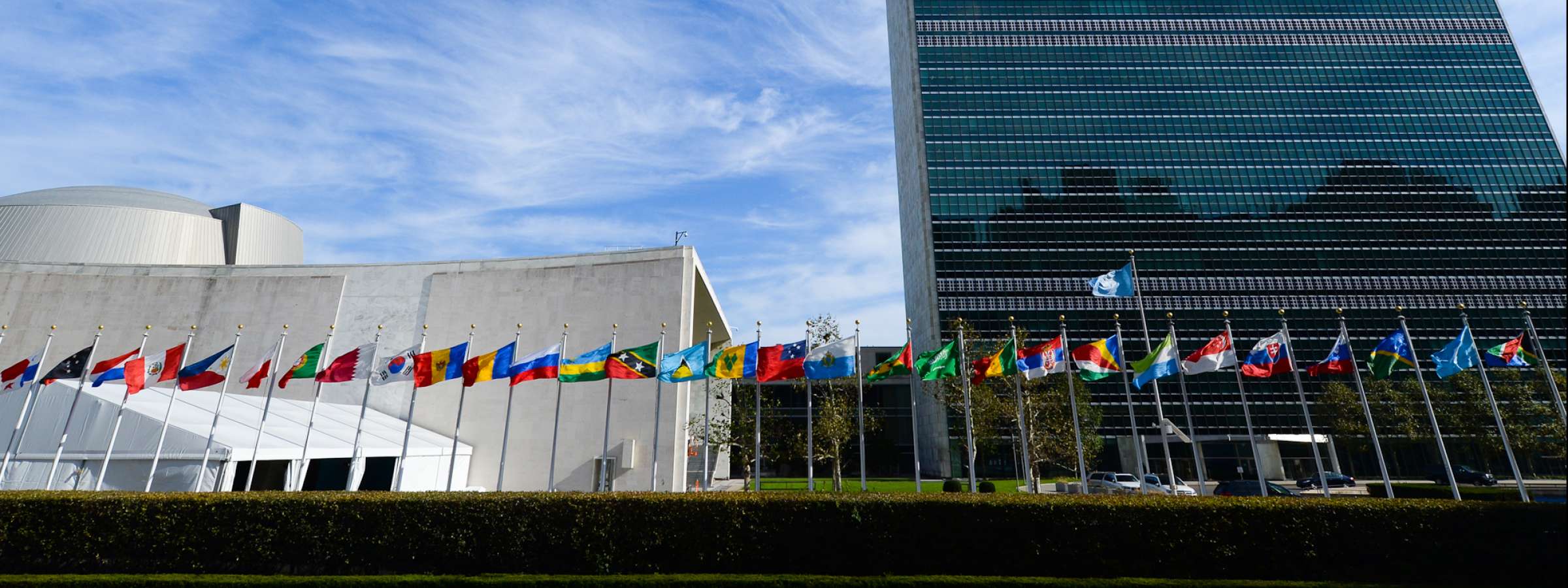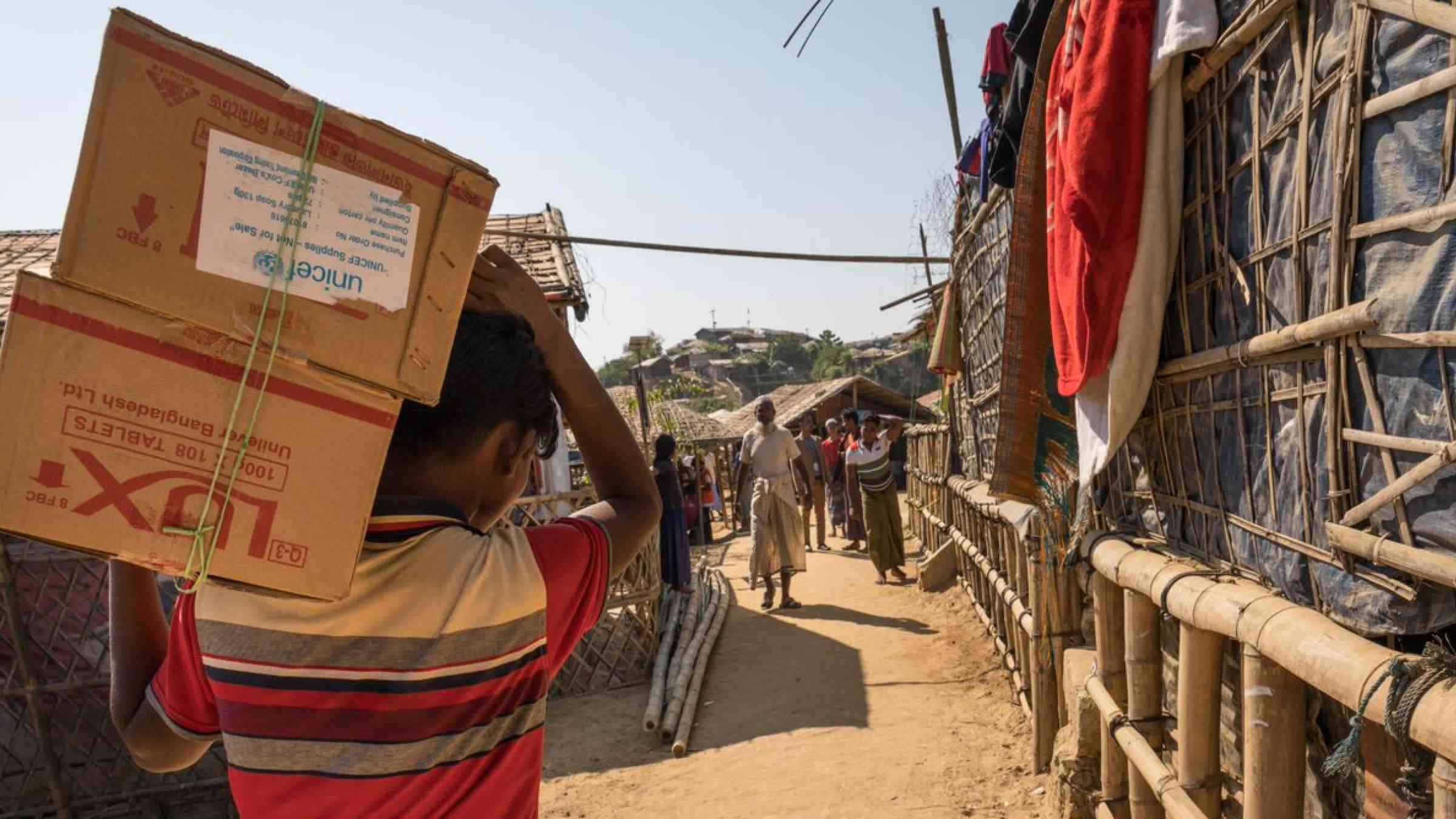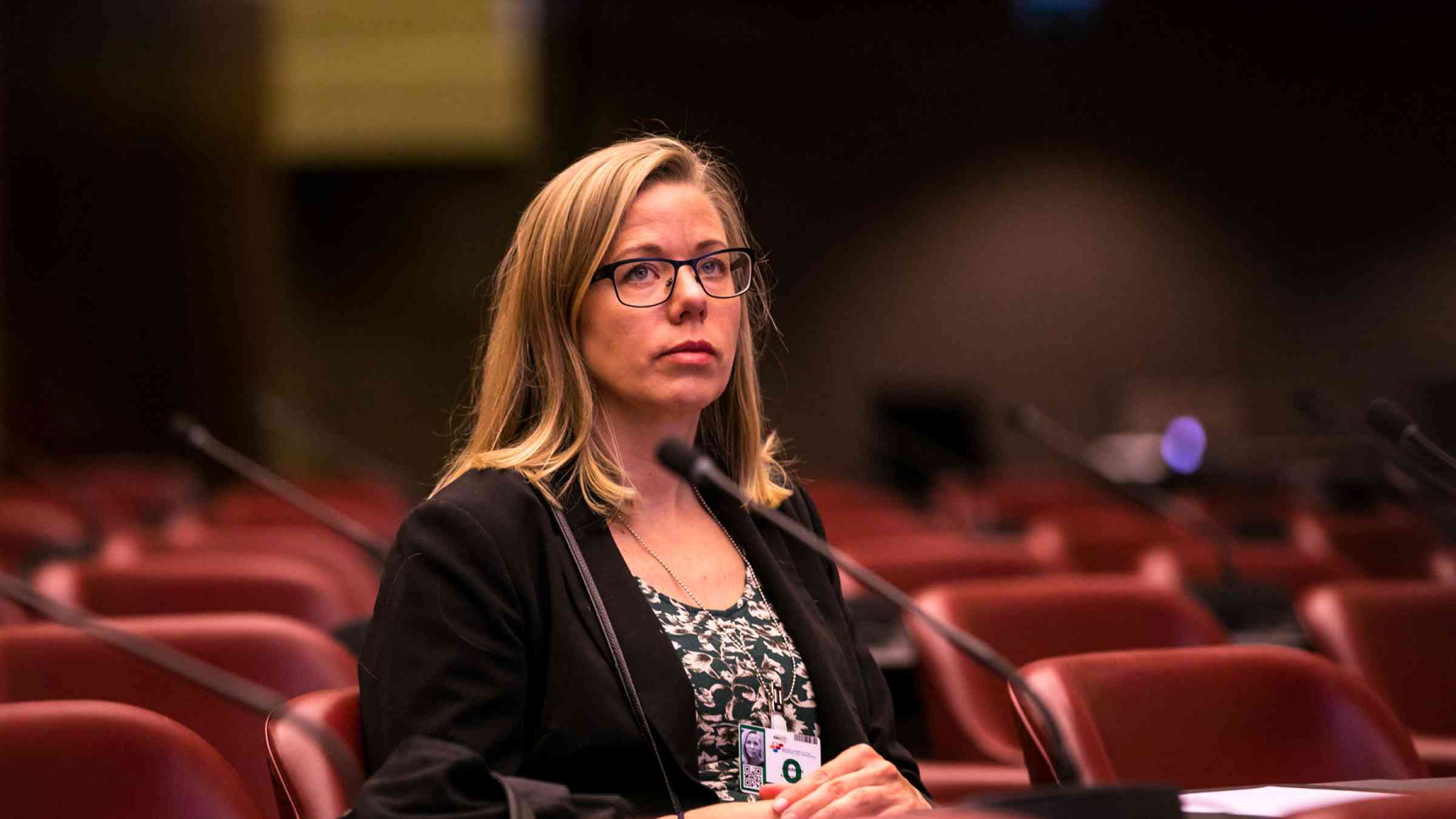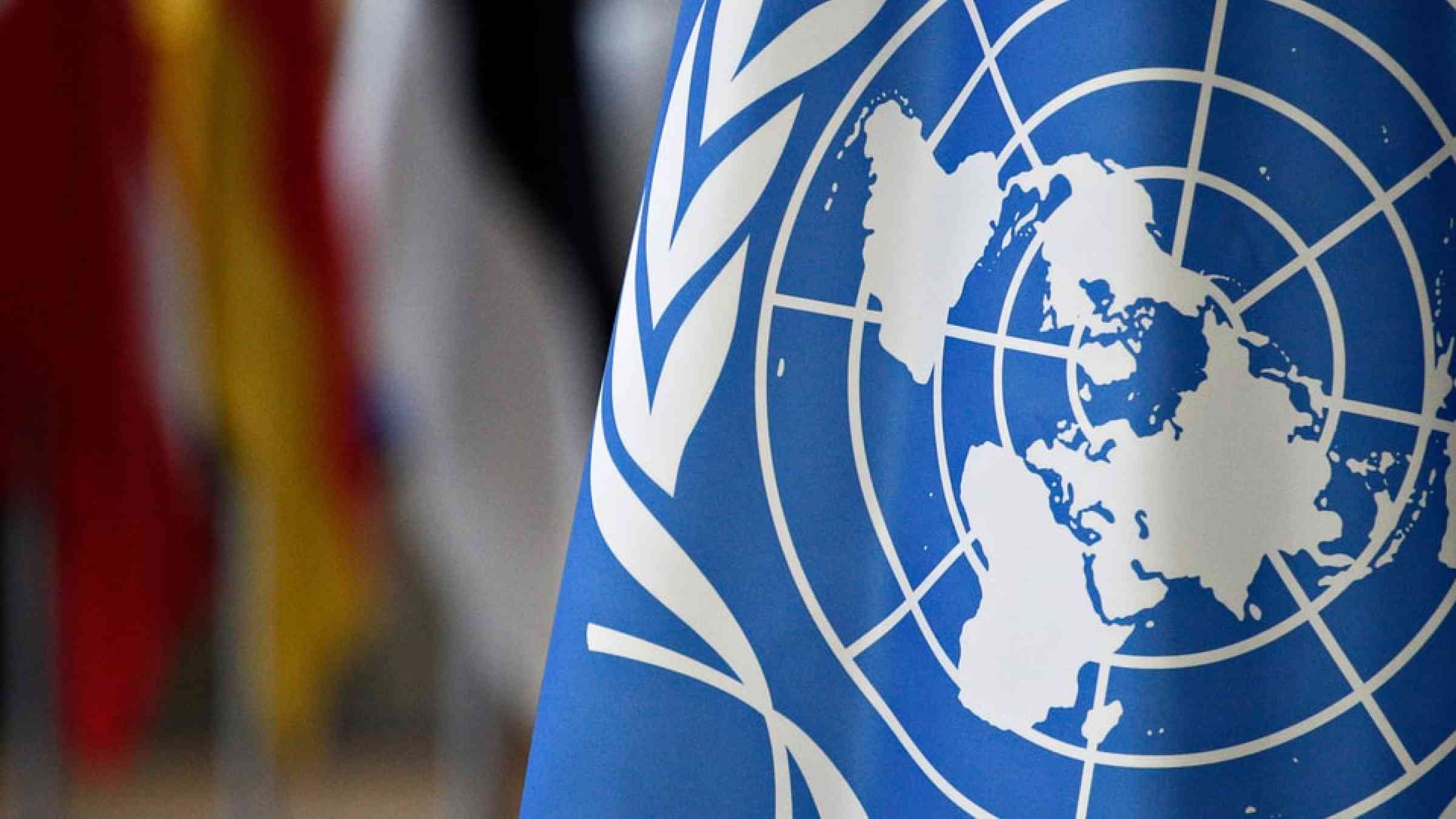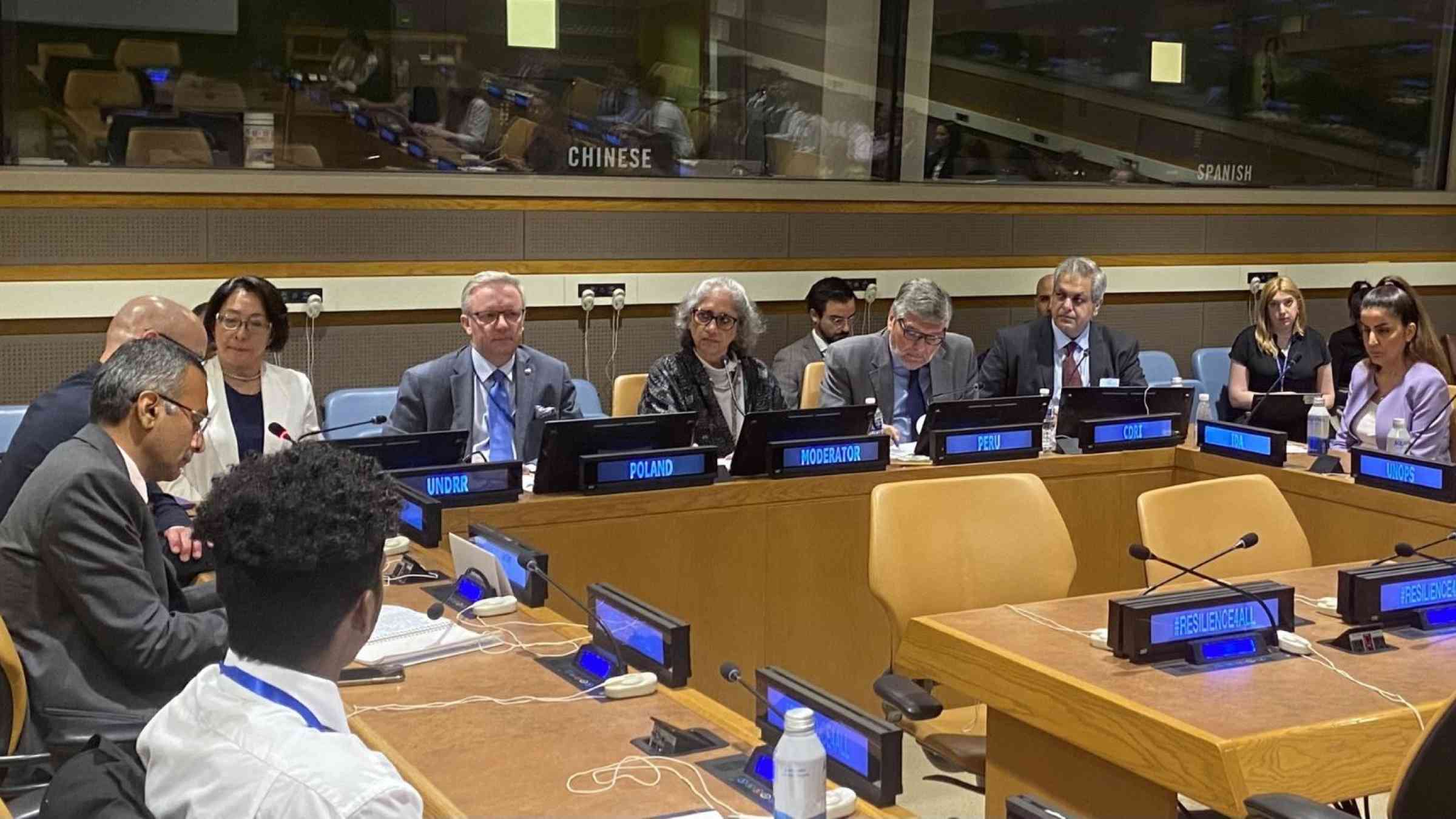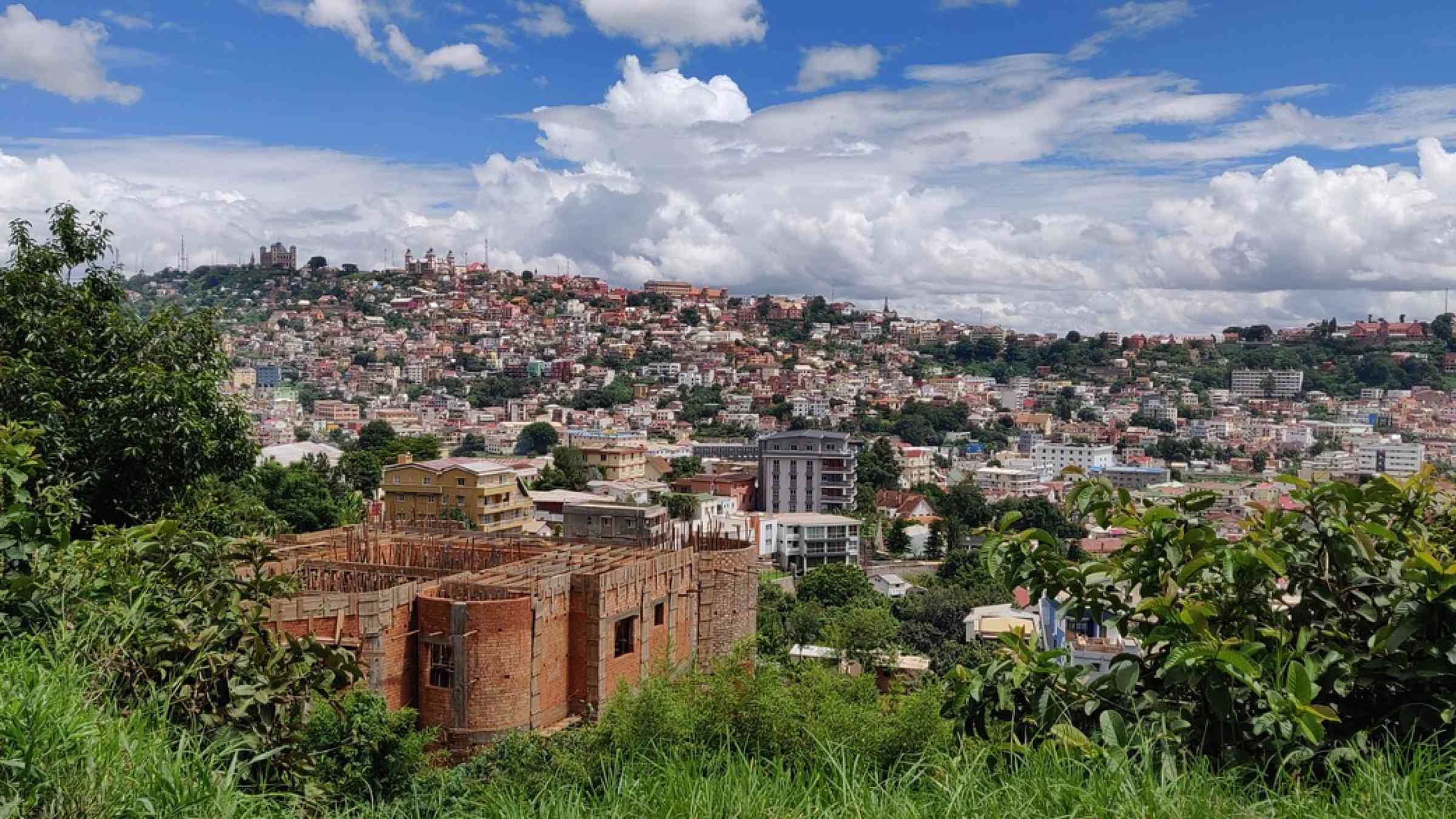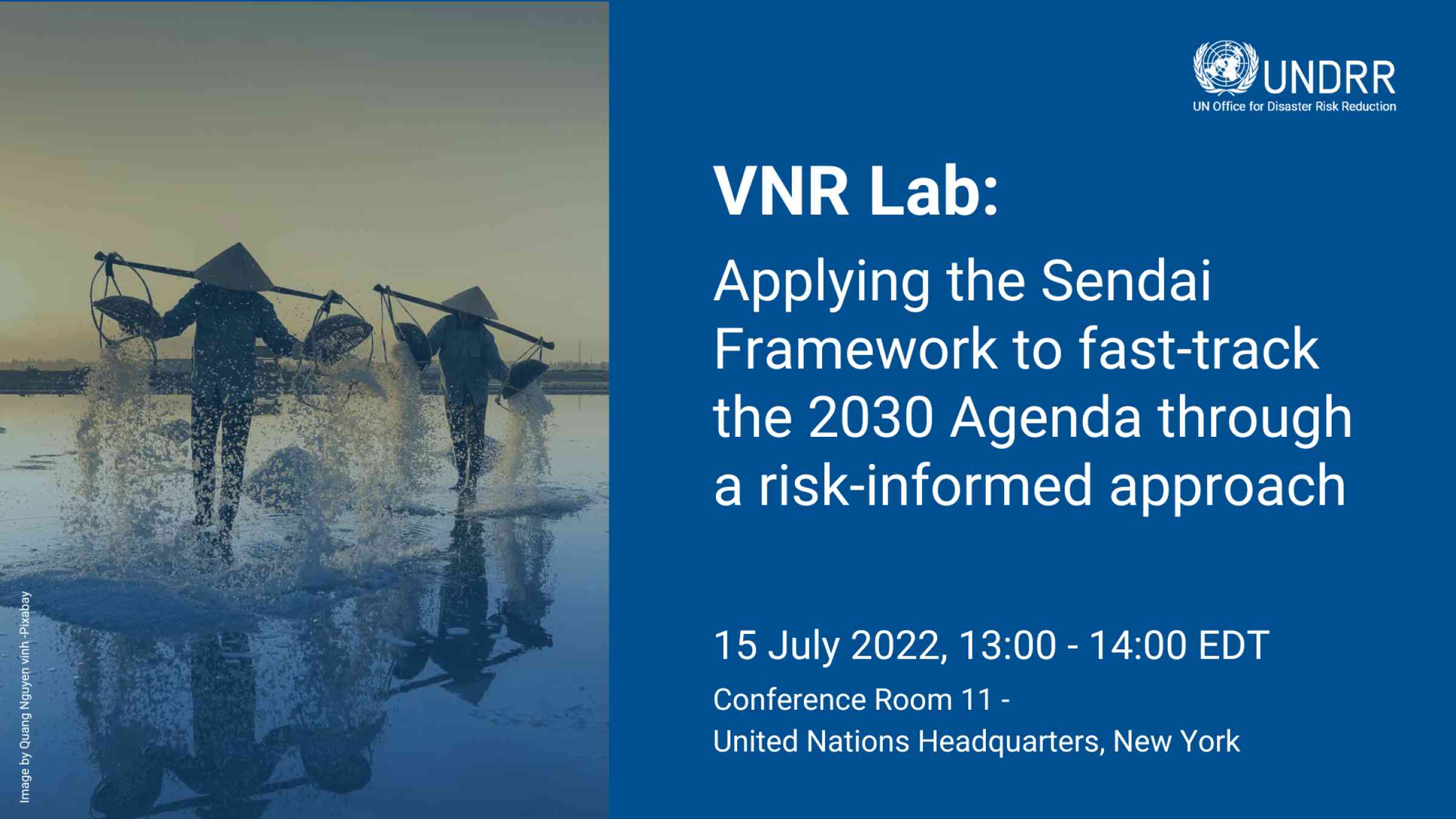New York Liaison Office
UNDRR’s New York Liaison Office (NYLO) provides policy advice and support to UN Member and Observer States and other stakeholders, supports the Office of the Secretary-General, and closely works with UN system partners to advance disaster risk reduction and Sendai Framework implementation.
The NYLO promotes policy coherence across disaster risk reduction, climate action, sustainable development, and financing for development through intergovernmental deliberations and policy decisions taken at the General Assembly and ECOSOC.
This includes promoting DRR integration and coherence with the Sendai Framework in the implementation of major intergovernmental agreements, including the 2030 Agenda for Sustainable Development and the Addis Ababa Action Agenda on Financing for Development, the Paris Agreement on climate change, the Doha Programme of Action for Least Developed Countries, the Vienna Programme of Action for Landlocked Developing Countries and the Samoa Pathway for Small Island Developing States, to ensure their implementation benefits from and contributes to reducing disaster risk.
Focus areas and engagements
Latest updates
Contact us and stay updated
2 United Nations Plaza
11th Floor (DC2-1149)
10017 New York, United States of America
Phone: +1 212 963 5385
Fax: +1 917 367 1578
